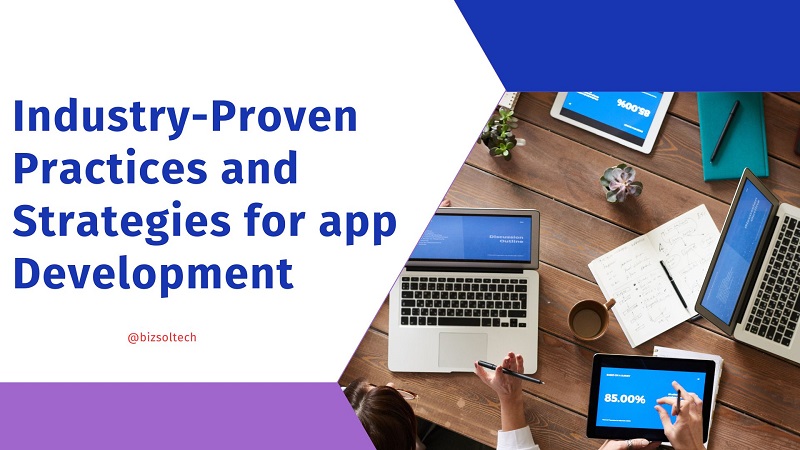The mobile landscape is most competitive. Every day, countless apps vie for user attention, a struggle for dominance in the ever-expanding pockets of consumers.
Imagine this: you’ve poured your heart and soul into your next big business idea – a revolutionary mobile app that will change the way people interact with shopping stores. You hire a freelancer, a coding whiz seemingly legit from freelancing profiles.
The price is unbeatable, the communication… well, let’s just say it involves cryptic emails and late-night calls. Finally, launch day arrives. Confetti rains down (metaphorically, of course), you hit that publish button with a triumphant click… and then… disaster.
The app crashes under user load, reviews plummet faster than a dropped phone, and your dreams of app dominance vanish quicker than a server on Black Friday.
Ouch. Now, this cautionary tale isn’t meant to disparage freelancers entirely. There are talented individuals out there. But when it comes to crafting a market-leading mobile app, a reputable software development company is the cavalry you need to charge into battle and emerge victorious.
Here’s why:
As a business leader, you see the potential – a well-crafted app can revolutionize your customer engagement, streamline operations, and unlock new revenue streams.
In today’s hyper-connected world, a well-crafted mobile app can be the key to unlocking explosive growth for your business. It’s a direct line to your customers, a platform to showcase your brand, and a powerful tool to drive engagement and sales.
But how do you navigate this complex terrain and ensure your app development journey is a triumph, not a costly misstep?
Here, a well-tested app developer, I’m going to share industry-proven practices and strategies that will turn your app idea into a market leader, saving you time, resources, and frustration along the way.
1. Know Your Why: Define Your App’s Purpose
Before you dive headfirst into coding, take a step back. What problem are you solving for your customers? How will your app make their lives easier, more enjoyable, or more efficient?
Clearly defining your app’s purpose ensures every design decision and feature aligns with a core objective. It’s your North Star, guiding the entire app development process.
Think of it this way: You wouldn’t embark on a road trip without a destination. Similarly, don’t start app development without a clear understanding of what you want to achieve.
2. Embrace the Power of Research: Understanding Your Audience
Who are you building this app for?
What are their needs, pain points, and mobile app habits?
Conducting thorough user research is essential. Dive into market reports, conduct surveys, and even hold focus groups. Understanding your target audience allows you to tailor the app experience to their specific needs, ensuring maximum adoption and engagement.
Imagine this: You build a restaurant review app with a focus on fine dining, but your target audience is college students. They might be more interested in budget-friendly options and fast food deals. Research helps you avoid costly mismatches.
3. Design for Delight: User Experience is King
In today’s crowded app market, a beautiful interface is table stakes. You need an exceptional user experience (UX) that’s intuitive, user-friendly, and downright delightful. Invest in user interface (UI) and UX design experts. They’ll craft a seamless and engaging experience that keeps users coming back for more.
Think about it: Imagine a beautiful restaurant with a confusing menu and unfriendly staff. No matter how delicious the food, the experience would be frustrating. Your app needs to be both visually appealing and easy to navigate.
4. Embrace Agile Development: Flexibility is Your Friend
Gone are the days of waterfall development, where features are carved in stone. Agile development allows for a more iterative approach. You break down development into smaller sprints, continuously gather user feedback, and adapt the app based on their needs. This ensures you’re building something users actually want, not just what you think they want.
Imagine this: You build app with every feature imaginable, only to discover users primarily use two functionalities. Agile development allows you to prioritize features based on user feedback, saving you time and resources.
5. Leverage the Power of Testing
A buggy, crash-prone app is a recipe for disaster. Investing in a robust testing strategy is crucial. Partner with a quality assurance (QA) team to identify and squash bugs before launch. They’ll also ensure your app performs well under various scenarios, like low network connectivity or high user load.
Imagine this: You build a beautiful castle, but forget to test the drawbridge. During the first siege, it collapses, leaving you vulnerable. Similarly, a bug-ridden app can damage your brand reputation and lose users.
6. Security is Sacrosanct: Protecting User Data
In today’s digital world, security is paramount. Ensure your app adheres to the latest data security regulations and best practices. Implement robust encryption measures to protect user data and prevent unauthorized access. Remember, a security breach can have devastating consequences for your business and your users.
Imagine this: You build a secure vault to store valuables, but forget to lock the door. Similarly, a security vulnerability in your app can leave user data exposed.
Partner for Success: Why a Development Team is Your Best Bet
While this guide provides valuable insights, navigating the complexities of app development alone can be daunting. Here’s the truth: partnering with a professional development team with expertise in all these areas is the smartest move you can make.
Freelancer vs. Development Team: A Tale of Two Approaches
The Freelancer: A lone wolf, a coding gunslinger for hire. They might possess impressive technical skills, but crucial aspects of app development often fall by the wayside. Here’s what you might be missing:
- Strategic Guidance: A freelancer might code beautifully, but do they understand your target audience? Will your app solve a real problem? A development team brings strategic thinking to the table, ensuring your app is built for success.
- Design Expertise: A great app isn’t just about code; it’s about user experience (UX) and user interface (UI) design. Freelancers rarely possess the combined skillset of developers and design professionals. A development team offers a holistic approach, crafting an app that’s both functional and visually appealing.
- Testing and Security: Buggy apps and security vulnerabilities can kill your app faster than a bad review. A freelancer might not have the resources or expertise for rigorous testing and comprehensive security measures. A development team has dedicated QA specialists to ensure your app is polished and secure.
- Communication and Collaboration: Development is an iterative process. Clear and consistent communication is key. Freelancers can be geographically dispersed, leading to communication gaps and delays. A development team fosters a collaborative environment, ensuring your vision is translated into reality.
A good development team will not only translate your vision into a functional app, but they’ll also guide you through user research, provide you with regular updates, detailed reports, and actively collaborate with you on making changes and improvements throughout the development process.
So, ditch the solo act and embrace the power of collaboration.



